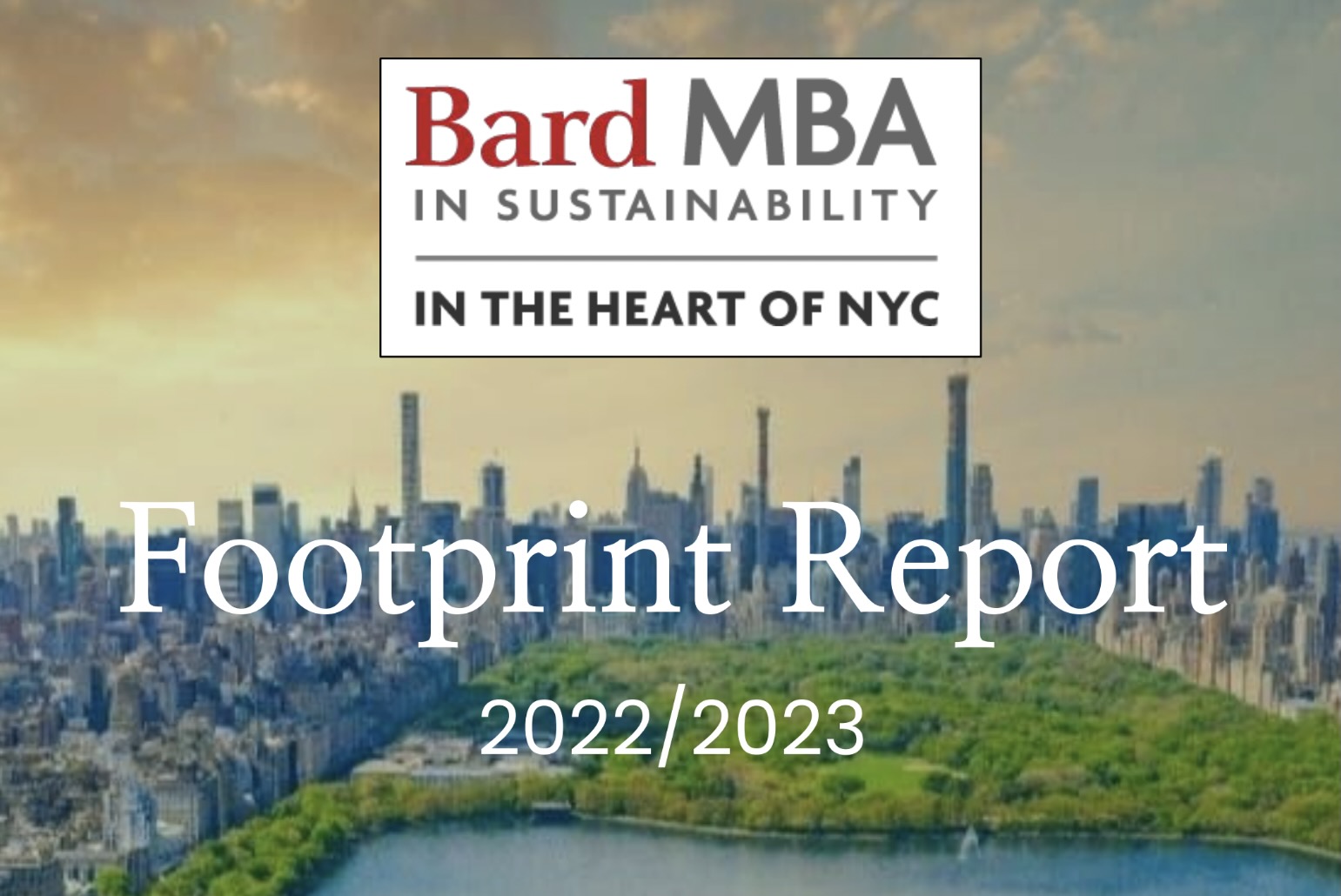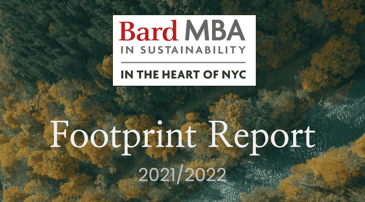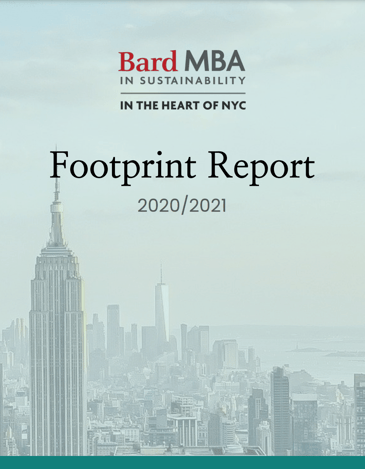Announcing the 2022/2023 Footprint Report

It is with pleasure that the Bard MBA in Sustainability Footprint Committee presents the Third Annual Footprint Report for the 2022-2023 academic school year. This report reflects the estimated emissions of the program, from faculty, administration, and students for our regular hybrid program beginning in August 2022 and ending in May 2023.
The total greenhouse gas emissions for the 2022-2023 academic year were 150.37 MT CO2e, the equivalent of 385,481 miles driven in a passenger vehicle.
This year’s report made three key updates:
1. YoY ComparisonsFor the past two years the Bard MBA has experienced a return to normalcy with in-person residencies. This allows the program to develop year-over-year comparisons and accelerate the process of seeing how policies, operations and cohort size have an impact on estimated emissions. The 2020-2021 academic year was adjusted to reflect estimated emissions and maintain consistency in data calculation. By no means is the 2020-2021 academic year a baseline, however it does reflect the contrast of an online versus in-person program.
Figure 1: Year over year comparison table
2. Granular Calculations
The report grows through a variety of perspectives that offer insights into practices that can improve the quality of data. Several sections developed or are preparing for the capacity of: new research, more granular CO2e calculations based on location, and the potential for personalized footprint information. These will assist in behavior changes to promote best practices, recommendations and a more accurate estimated footprint.
3. Expansion of Social Impact Reporting
To more fully capture the Bard MBA total impact, and in order to address the intersectional nature of sustainability and justice, the committee chose to expand this report to measure the program’s social footprint in 2021/2022. This effort follows the mission and values of Bard MBA in Sustainability. In its first year, the report established the program’s “social baseline,” guided by the Bard GPS Anti-Racism and & Justice, Equity, Diversity, & Inclusion (JEDI) Roadmap.
In this second year of measuring the Bard MBA’s social footprint, the committee sought to build on the foundation set in year one by documenting the impact of policies, procedures, and practices on individuals and groups both within and outside of its community. This year, we introduced a “Justice” element (along with the existing Equity, Inclusion, and Diversity metrics) with the intention of advancing our shared understanding of an anti-racist practice. We hope that the information shared will support the program in its ongoing transformation towards embodying its anti-oppressive values and preparing leaders with the skills necessary to create an equitable world.
The Committee is grateful for the continued support and interest in this report and welcomes questions and discussion.
The goal of the Footprint Committee is to provide students with a solid foundation for understanding, analyzing, and translating carbon footprint data. Committee members were responsible for every part of the process from survey design to methodology, to data analysis/visualization and interpretation. The skill-set acquired through participation is real-world experience that will be transferable to many of the sustainability roles that students will take on in their careers.



